| Dear Voornaam, Welcome to your April newsletter. I hope you are well. In March we published our refreshed research strategy. We set out our last strategy in 2014, and we are incredibly proud of all the progress our research community has made since then. As we have learned more about cancer and had such advances in technology, it's time to evolve that strategy and ask new questions.
Our research strategy puts discovery research and excellence at the heart of all we will do. Its built around four objectives to discover, detect, prevent, and treat so that progress in understanding the fundamental biology of cancer leads to new prevention measures, tests and treatments. It is underpinned by our principles: to invest in creative people who can deliver research of the highest quality; to reduce cancer inequalities and improve outcomes for everyone; and to involve people affected by cancer in our work. Innovation and partnership form major components of the new strategy as we seek to advance discoveries towards patient benefit. We will publish fuller strategies in several areas where we see enormous potential, such as data science, clinical trials and therapeutic innovation. The first of these, a new strategy for prevention research, you can read about below.
Finally, it's great to see the annual AACR conference back this year in New Orleans, USA. Visit us at stands 1108 (Cancer Research UK), 1118 (Cancer Grand Challenges) and 818 (CancerTools.org) from 813 April to say hello. For those attending, I also welcome you to our networking reception on 11 April, 6pm-8pm, where well be marking 20 years since Cancer Research UK (CRUK) was formed. Celebrations will take place at Copper Vine, 1001 Poydras St, New Orleans, LA 70112. Please RSVP if you'd like to attend. We hope to see you there.
Kind regards, Iain Foulkes Executive Director, Research & Innovation Cancer Research UK |
|
|---|
|
|---|
|
|
| | | Systematic Review Call 26 May 2022 |
|
|---|
|
|---|
| | | Applications accepted all-year round |
|
|---|
|
|---|
|
|
| | YOUR QUESTIONS ON OUR RESEARCH STRATEGY Following an incredible response to the launch of our research strategy, we hosted an online event to answer your questions about our new direction and what it means for your research. We had over 200 people joining us for the Q&A, but if you missed out you can catch up on the recording below. With so many insightful questions, we were unable answer them all during the event, so you can read answers to those we couldnt get to on our blog. |
|
|---|
|
|---|
|
|
| | PREVENTION STRATEGY LAUNCH On 5 April we published our new prevention research strategy the first topic weve explored in depth alongside our research strategy refresh. It outlines how well build on mechanistic understanding to bring cancer biology into prevention, deepen our understanding of risk and use behavioural, pharmacological and immunological approaches to develop new ways to prevent cancer. We want to attract researchers with novel ideas to inform a new wave of preventative interventions that are precisely targeted to drive down cancer incidence equitably across society. |
|
|---|
|
|---|
|
|
 GAMMA DELTA T CELLS: A NEW APPROACH TO CANCER IMMUNOTHERAPY Over 40 years ago, a radical discovery revealing a new component of the immune system caused a stir in the scientific community. As initial controversy turned into therapeutic promise, the importance of translating this research for the treatment of cancer became very clear. We spoke to pioneering researchers Adrian Hayday and Oliver Nussbaumer, about the story of gamma delta T cells from discovery to clinical trial and how our unique, collaborative approach helped foster a new method of cancer immunotherapy. |
|
|---|
| 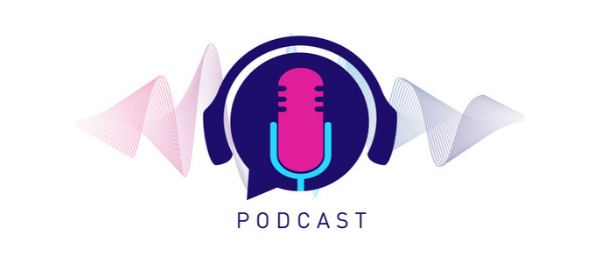 LISTEN TO EPISODE 2 OF OUR PODCAST FOR RESEARCHERS In the most recent episode of the Cancer Research Matters podcast, we spoke with Steve Jackson about his serendipitous discovery in the field of DNA damage repair, tips for forming a spinout based on his experience founding KuDOS Pharmaceuticals, and what we should aim for in the next 20 years of cancer research. Steve is the University of Cambridge Frederick James Quick Professor of Biology. He is also Head of Cancer Research UK Laboratories at the Wellcome Trust/CRUK Gurdon Institute. |
|
|---|
|
|---|
|
|
 SURVEY ON RESEARCH AND INNOVATION POLICIES AND FUNDING DECISIONS If you work in research and are based in the UK, the government wants to hear from you. The Department for Business, Energy and Industrial Strategy has launched the first government survey for the Research and Innovation (R&I) workforce in the UK. By completing this survey, youre contributing to understanding how the R&I workforce is affected by government policy and will help government and funders make evidence-based decisions. |
|
|---|
| 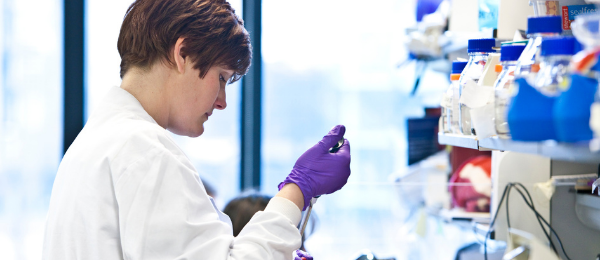 ACKNOWLEDGING THE IMPACT OF COVID-19 ON RESEARCH We've signed a cross-funder statement recognising the impact of COVID-19 and setting out how we'll look to fairly recognise the impact of the pandemic on future grant applications.
Last year, we asked our grant applicants to outline how the pandemic has impacted their research activity. Our reviewers will take this into consideration and make appropriate adjustments. |
|
|---|
|
|---|
|
|
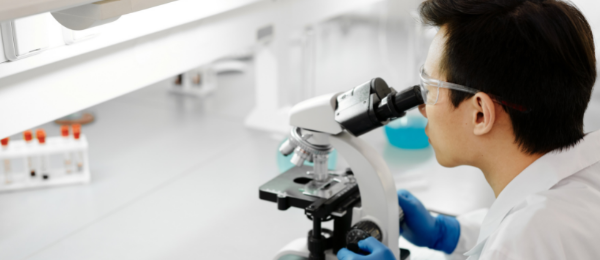 A NEW GLOBAL RESEARCH TOOLS COLLABORATIVE Introducing CancerTools.org, CRUKs research tools arm. Its a global non-profit community with a shared mission to accelerate cancer research and associated discoveries. Scientists can contribute research tools such as antibodies, cell lines, experimental models and share knowledge to deepen our understanding of cancer, and drive innovation within cancer research. If you're attending the AACR conference in New Orleans, make sure to stop by stand 818 to learn more. |
|
|---|
|  DISCOVER TRANSLATIONAL APPROACHES TO YOUR RESEARCH Are you an early career cancer researcher thinking about translating your research? We've partnered with the Eureka Institute for Translational Medicine to offer up to 40 places for a 4-day virtual school, running from 1013 May. You'll benefit from a series of virtual seminars, case studies and professional development sessions to help you get to know translational approaches to your work. This interactive experience is also a unique opportunity to build your network of translational researchers. Want to know what its like to take part? Read what previous participants had to say in our blog post. |
|
|---|
|
|---|
|
|
 REGISTRATION NOW OPEN FOR THE EARLY DETECTION OF CANCER CONFERENCE 2022 Registration for this years conference is now open. Join us in Portland, Oregon, on 1820 October for a jam-packed programme featuring sessions on microbiological risk factors, emerging technologies and multi-cancer detection tests. The conference will unite the brightest minds in cancer research to discuss and debate some of the greatest challenges and opportunities for early detection research. Confirmed session chairs include Simon Leedham (University of Oxford), Victor Velculescu (Johns Hopkins University), Wendy Garrett (Harvard University), Xin Lu (Ludwig Cancer Research), Rebecca Fitzgerald (University of Cambridge), Tom Beer (OHSU) and Robert West (Stanford University). |
|
|---|
| 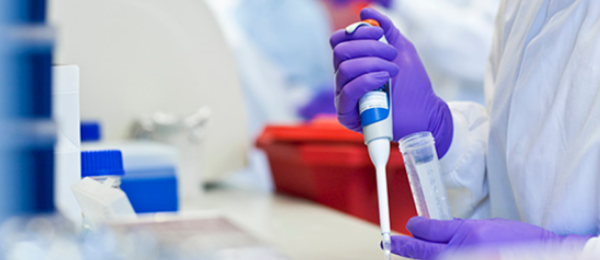 EARLY DETECTION OF CANCER: THE STATE OF THE FIELD How can we overcome key research challenges to enable early detection of cancer? A review by David Crosby and others, published in Science, highlights the need for further innovations and development of early cancer detection approaches, as well as an interdisciplinary research culture. From understanding the biology and prognosis of early cancer to determining the risk of developing cancer, it assesses some of the biggest challenges and suggests a constructive framework to accelerate progress. Full access version is available on our website. |
|
|---|
|
|---|
|
|
| | NEW CONFERENCE CELEBRATING BLACK EXCELLENCE IN CANCER RESEARCH Weve partnered with Black in Cancer for an inaugural meeting in London on 1011 October, which will bring together scientists and patient advocates from across the globe to collaborate, network and create the synergy needed to drive change. This event is open to scientists across the research pipeline from all career stages. There will be ample time throughout the conference to network with peers, view posters and continue thought-provoking conversations outside of the agenda. |
|
|---|
|
|---|
|
|
 OBSERVE FUNDING PANELS AND COMMITTEES Would you like to see how grant funding decisions are made? From May 2022, we're offering early and mid-career researchers a chance to observe our funding panels and committee meetings. Youll learn how to draft a successful research proposal and develop your skills as a peer reviewer. |
|
|---|
| 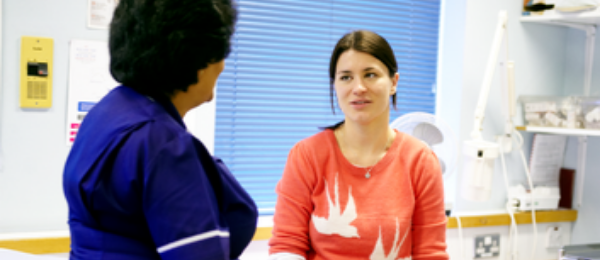 THE IMPACT OF LONGER DIAGNOSIS TIMES IN TEENAGERS AND YOUNG ADULTS WITH CANCER A recent paper, published in the British Journal of Cancer, reveals that young people who take longer to be diagnosed with cancer are more likely to be clinically anxious, depressed and report lower quality of life following diagnosis. The research, which was partly funded by us, is the first of its kind to show a link between poorer mental health and quality of life amongst teenagers and young adults who wait longer for a cancer diagnosis. |
|
|---|
|
|---|
|
|
| | | Abstract deadline: 19 April 2022 12 July 2022 |
|
|---|
|
|---|
|
|
| Been forwarded this email? Subscribe to our newsletter to stay up-to-date. |
|---|
| |
|---|
|
|
|